Congregation Fears Loss as City Razes Collapsing Bed Stuy Shul
The Black Jewish congregation that gathered in the historic synagogue on Greene Avenue in Bed Stuy before a devastating fire and a recent roof collapse fears losing the property due to mounting costs.

The synagogue at 1006 Greene Avenue Thursday. Photo by Anna Bradley-Smith
Rabbi Baruch Yehudah had his bar mitzvah at Bed Stuy’s Black synagogue B’nai Adath Kol Beth Yisrael. Years later, he circumcised both his sons there. As well as religious services, there’s been coat drives, soup kitchens, and plenty more community gatherings held out of the corner building at 1006 Greene Avenue at Patchen Avenue since his congregation moved there in the ‘60s, Yehudah said.
“The marriages and the bar mitzvahs, the people of history and renown that have gone through those doors, you know, the many events — I mean, in 2016 we had 800 people in that building for the inauguration of our chief rabbi — the building has so many memories,” he said.
But in recent years, the once grand house of worship of the congregation B’nai Adath Kol Beth Yisrael (BAKBY) has become a ruin. In 2017 a devastating fire tore through the building and in recent weeks it has become increasingly unstable following a roof collapse. It looks close to crumbling onto the sidewalk and the empty lot at the rear on Greene Avenue.
Because of that, the city alerted the rabbi that it was going to tear it down, possibly within the next few days, although so far, no demolition permit has been applied for, the city’s Department of Buildings records show. Today workers are on site putting up scaffolding around the building next door, adding extra bracing on all sides of the building, and using cherry pickers to inspect conditions on the roof, a visit revealed. A worker on site told Brownstoner demolition will start Monday.
Last week, the Department of Buildings conducted an inspection and discovered “additional sections of the roof and the exterior south facing wall had collapsed,” a Department of Buildings spokesperson said in an email to Brownstoner today. The inspection revealed that “further collapse” could happen any time, so on Tuesday, March 19, the agency “issued an immediate emergency deceleration” for a full demolition of the building.
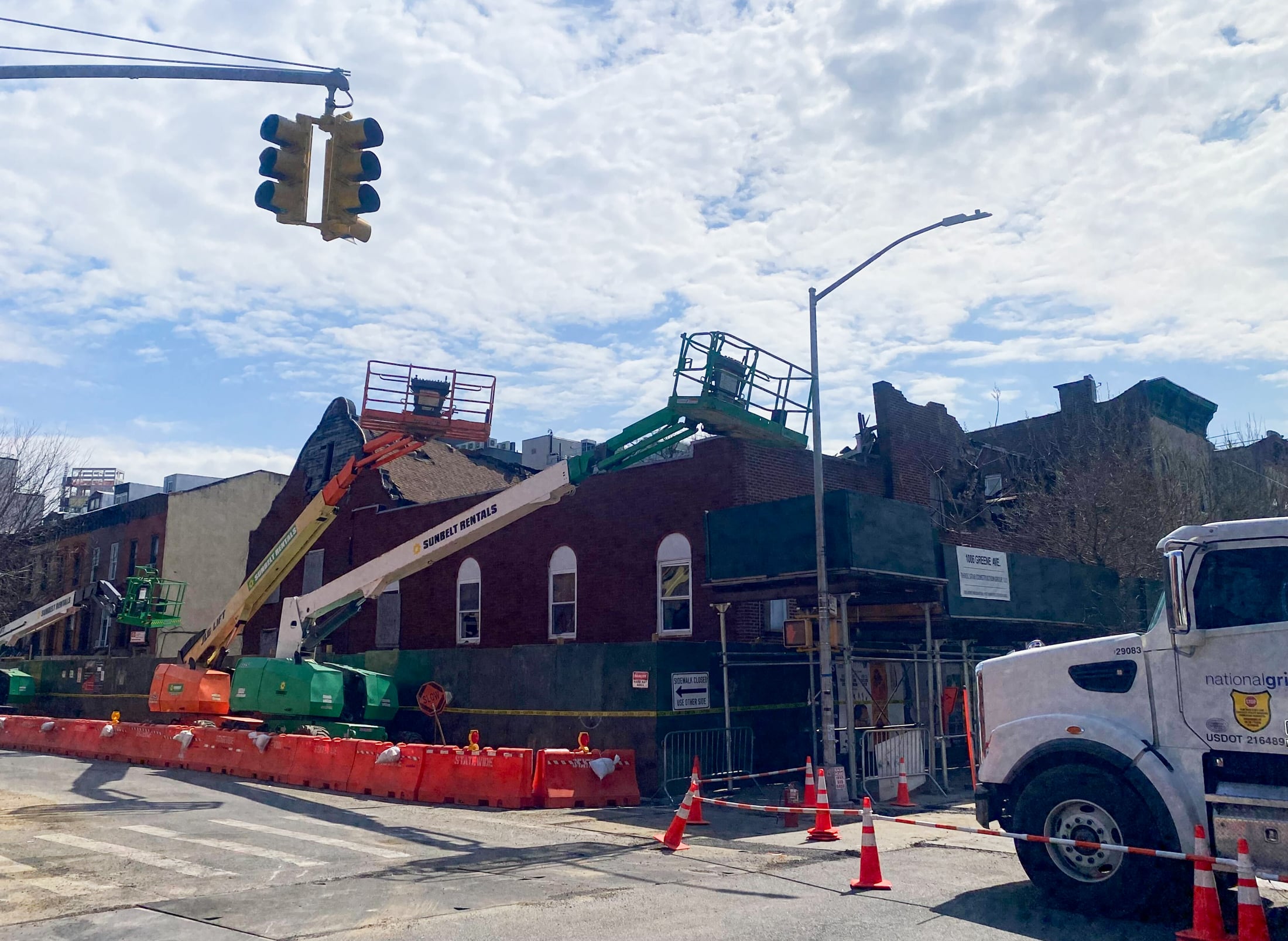
Yehudah, with the help of architect and lawyer brother-sister duo Joshua and Susan Zinder, has been trying for years to raise the funds to pull down the building and rebuild, possibly with a community space or affordable housing above, but he said fundraising hasn’t been easy. The demolition alone would cost more than $300,000, he said. The city’s quote, which the congregation will have to repay, is more than double that, he said.
Yehudah said that even though he knows the synagogue, which he said is one of the oldest remaining Black shuls in the city, is on its last legs, it is still “heart wrenching” to see it go.
“It reminds me of, you know, a loved one that you don’t want to see go, but they’ve been suffering for many years and you don’t want to continue to see them suffer,” he said. “So now that it’s coming down, I just want to make sure that we’re there. I need to be there when it actually does come down.”
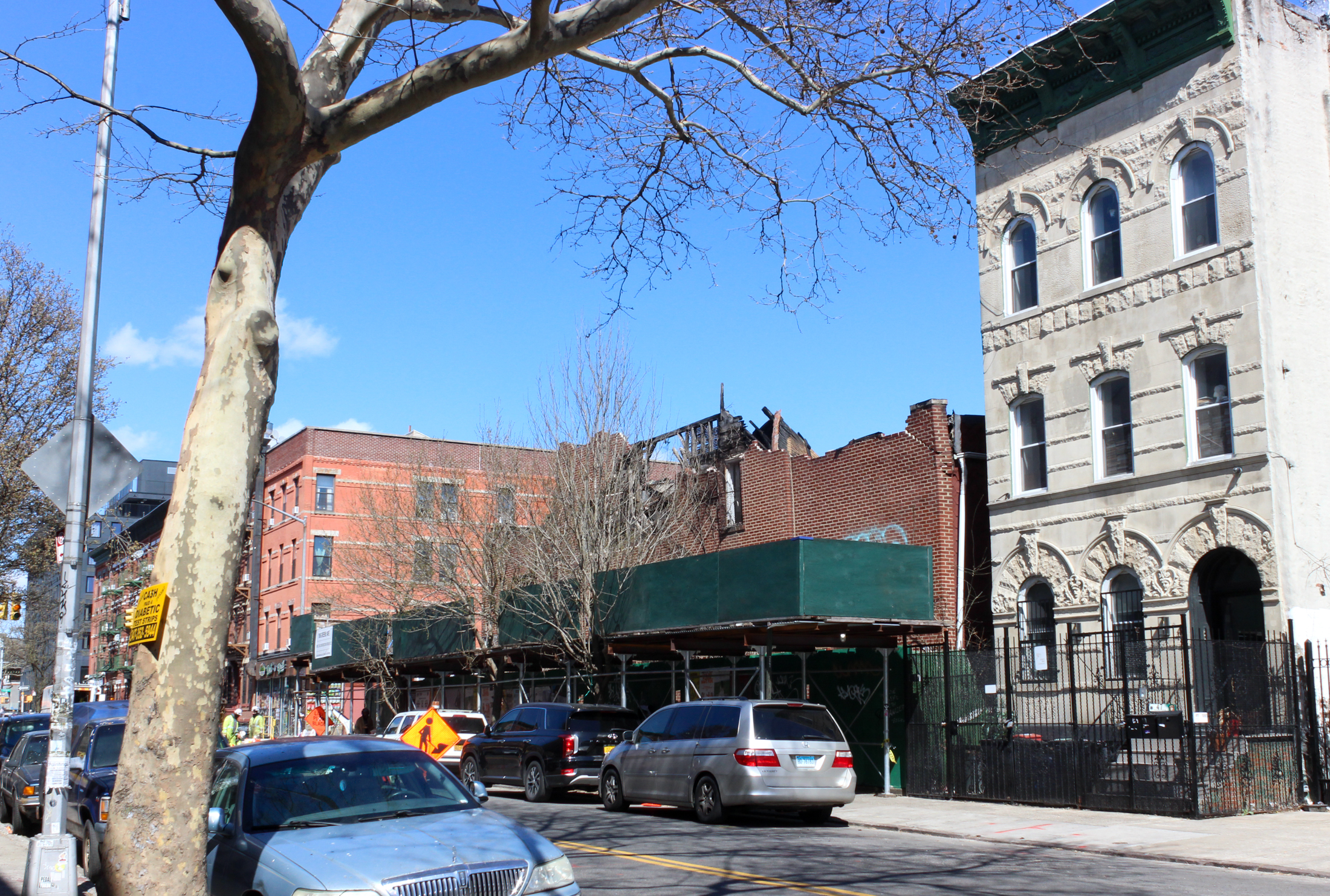
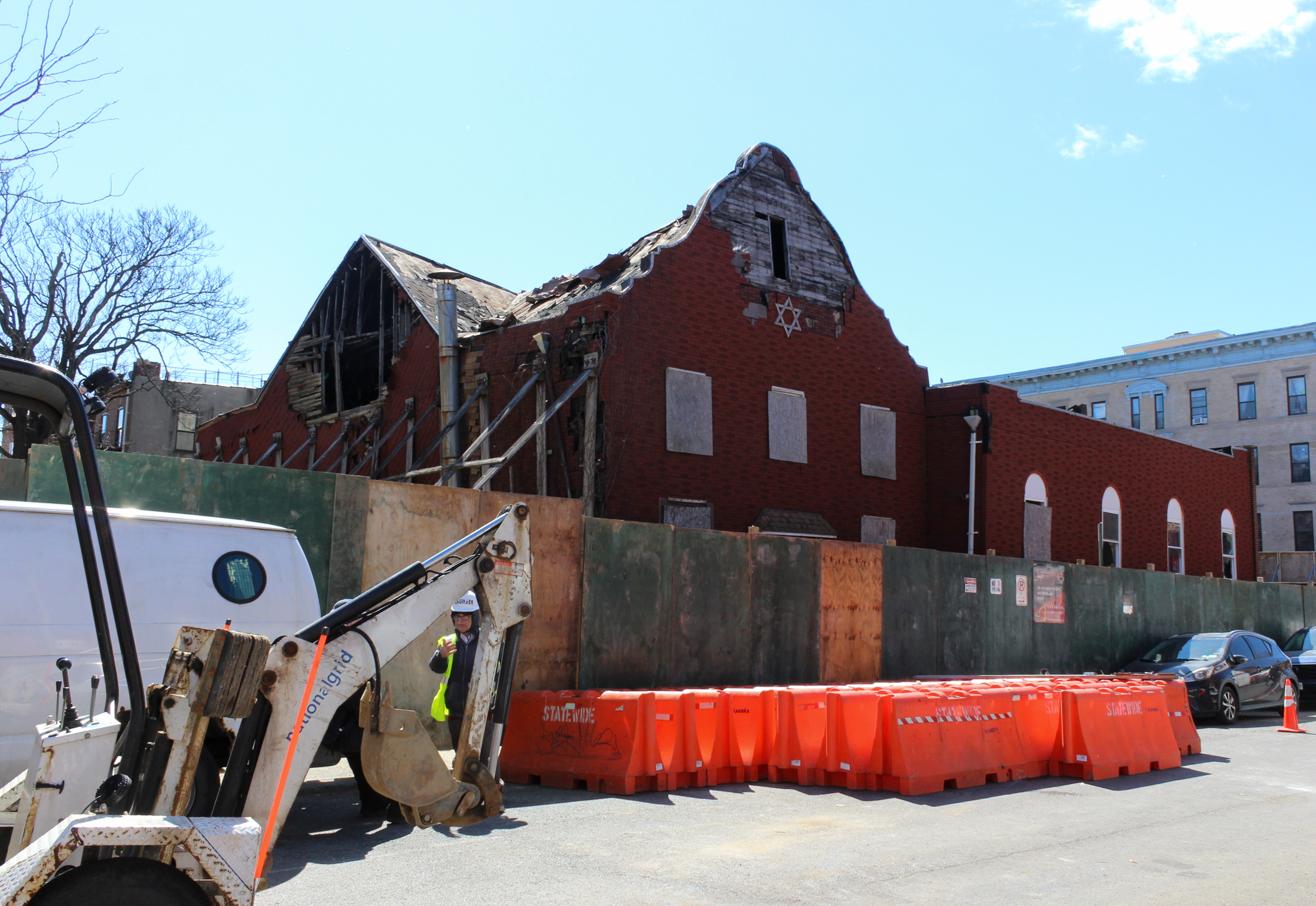
Since the 2017 fire, the congregation has rented a small space in Queens from which the rabbi could broadcast services. He said ideally he would have liked to stay in Brooklyn, where the majority of his congregants are, but the rent is too high. Over the last few years, the congregation has been trying to get through the pandemic and pay their bills, he said, while constantly trying to organize to get back into the Greene Avenue space. A big part of that organization has been getting into compliance with city rules around nonprofits, and, of course, trying to raise funds.
“Our predicament is weird, we are a Black congregation so the mainstream Jewish philanthropies have not yet taken notice. With the Black philanthropies, we’re Jewish and they’re not,” he said.
“Although we have been a place that has helped give shelter to people, we’ve run soup kitchens for years, served hundreds of people, done all these things, that’s all we want to do is continue to be a community help to all the members of our community, whatever their religion, whatever their color, it doesn’t matter.”
Josh Zinder and Michael Landau, architects who specialize in synagogues and other Jewish facilities, did take notice when Yehudah reached out to their firm Zinder Landau Architecture years before the fire. Back then, Yehudah had been wanting to make renovations to the historic building after the east wall had partially collapsed when thieves ripped the copper from it, and the congregation had stabilized the building.
“Michael and I came out to the project, and we looked at it, we looked at their building, we looked at the community need and, you know, for us it fit right into what our calling is. So we helped them with some visualization and with some fundraising,” Zinder said.
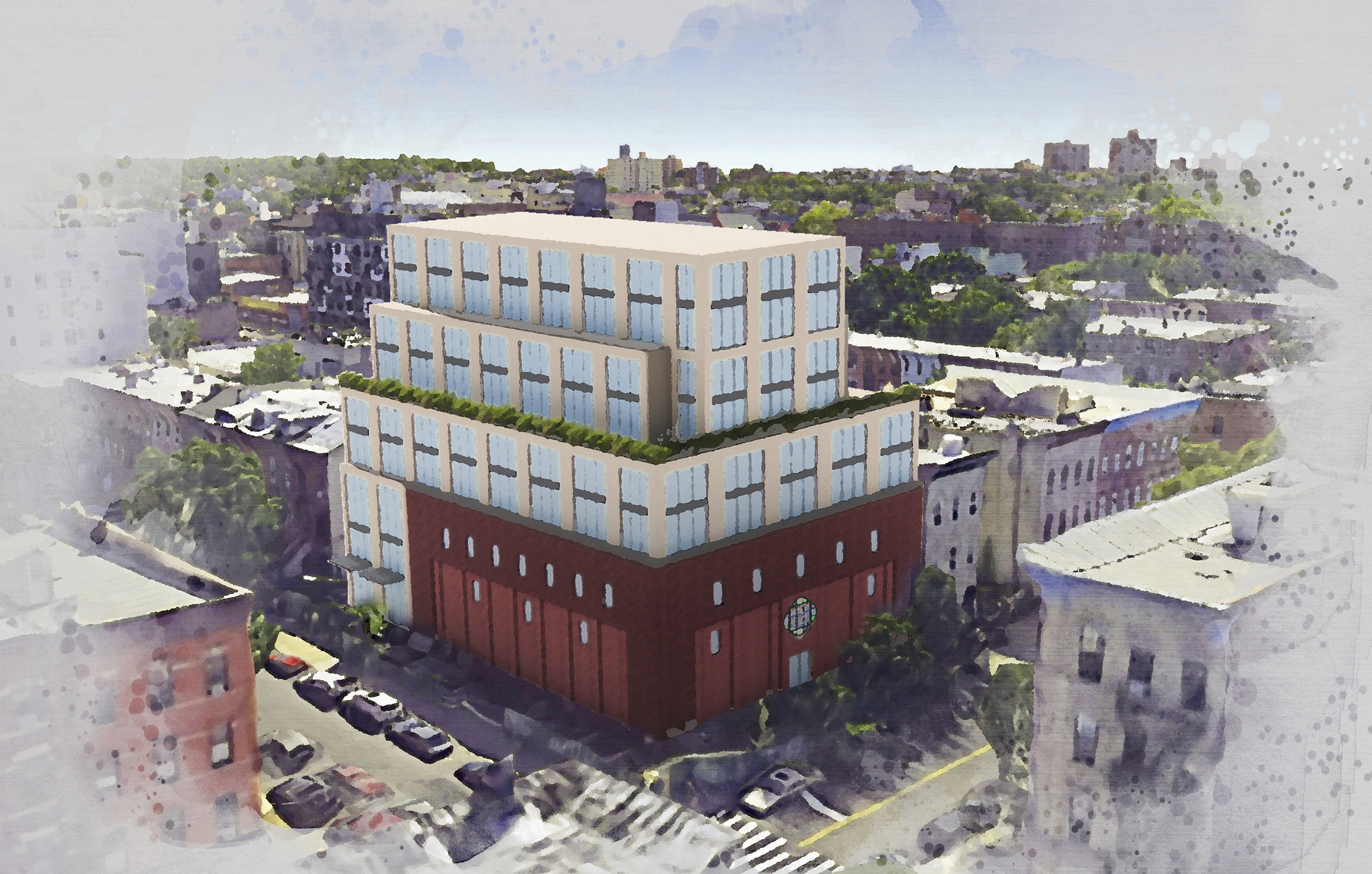
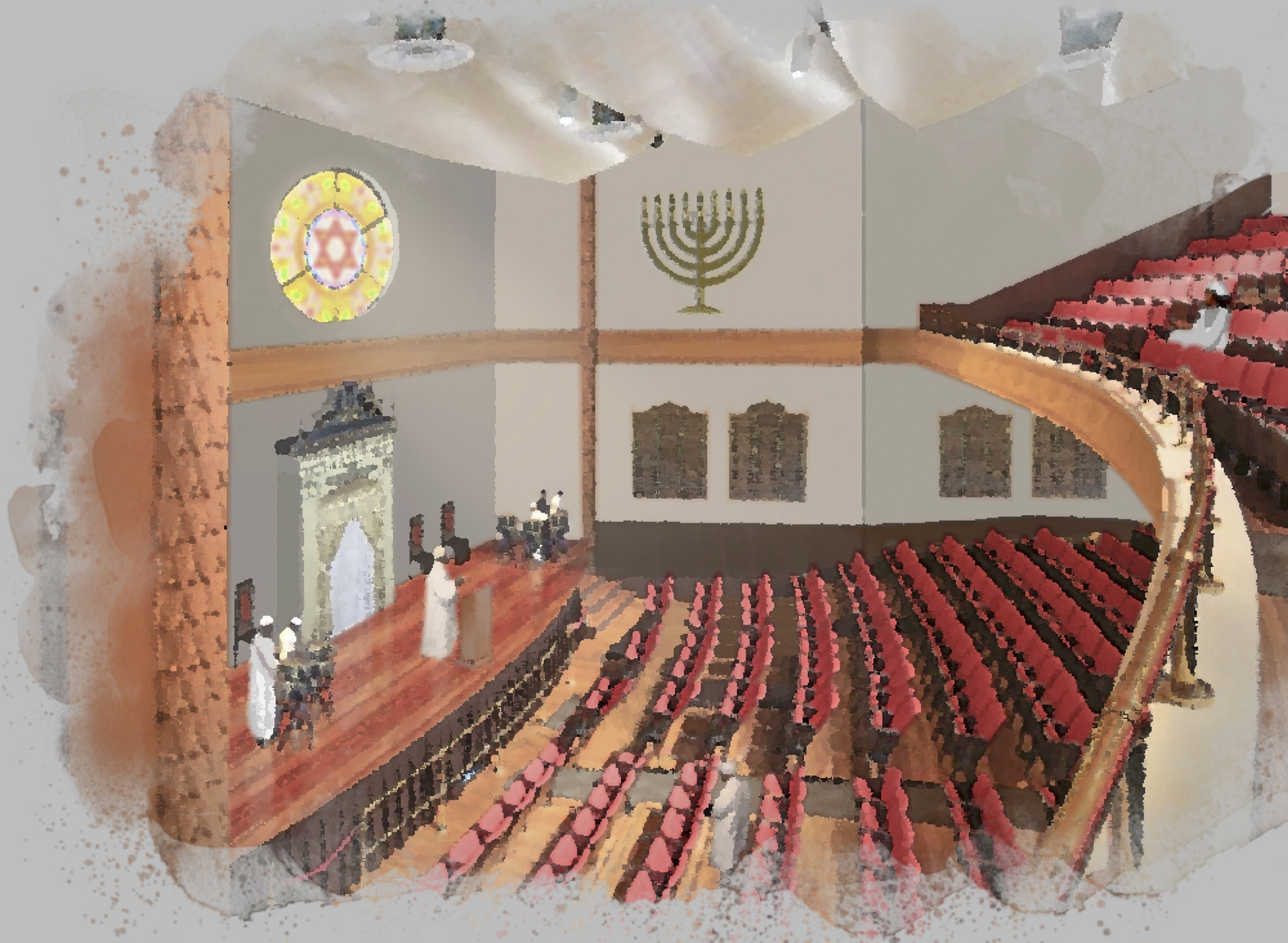
But not long after Zinder and Landau came onboard, the congregation hired someone recommended to fix a leak in the roof, Zinder said, who turned out to be “completely irresponsible.” Zinder said the contractor used a torch to remove a piece of the asphalt shingle roof and ended up setting the building ablaze.
After that, Zinder and Landau, along with Zinder’s sister Susan, a nonprofit lawyer, continued to help and support the congregation to organize for a rebuild. “Despite many people coming to them over the years and trying to buy the building out from under them, trying to push them out, they’ve done their best to stay,” Zinder said.
“I was always amazed with this congregation that when they had nothing, when they were running their services from their basement, they were gathering coats and giving them to people on the streets to stay warm during the winter, these people were caring when so few people these days do, so I looked at it as part of my job to help them in any way I could.”
Since the fire, the team has put out a request for proposals to developers to see if any would be willing to build with the synagogue, allowing for housing and a worship space below, but Zinder said zoning limitations had stopped any real interest. Part of their fundraising efforts have been targeted at seeking a rezoning to allow for a taller development, which a specialist lawyer quoted at $200,000.
At the same time, Zinder said they had been gathering resources to demolish the building, “that’s what we were literally talking about the day before we got the notice from the city.” He stressed the team hadn’t been ignoring or neglecting the property, and has been working with a contractor, but said it is very difficult to get anything done with limited funds.
“They’re not like one of the wealthier congregations that are in the suburbs,” he said. “This is a very caring, very important community, and they need help.”
The team wants to get an updated appraisal of the property and leverage the value to find a development partner, Zinder said, adding they had previously been told it is worth between $8 million and $12 million.
While Yehudah ideally wants any new building to be community space like a gymnasium, school, or healthcare facility, or affordable housing, Zinder said it could likely be a situation where the synagogue owns space in a new building, and the rest is developed as condos. “They are going to be up against the wall with what they are going to have to pay back to the city,” he said.
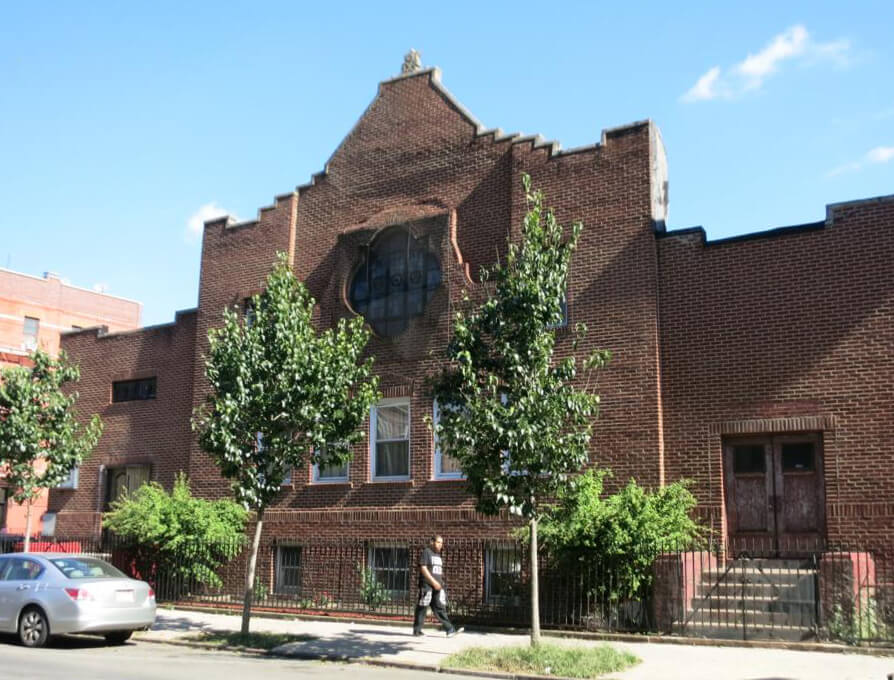
Susan Zinder said the “nightmare” situation the congregation has been in has exposed the weaknesses in existing Jewish and Black networks, and that she and her family are trying to help the congregation develop and strengthen those. “The challenge to bring people in has been real, but what we have found is that when people are brought in, they’re committed.”
The team has secured $60,000 in pro bono legal work from one of the country’s leading law firms, she said, and they are slowly building more connections in the Jewish community.
“I really believe firmly that if people are concerned…about maintaining and revitalizing the real deep partnership that the Black community within the United States held with the Jewish community within the United States in the 1960s and ’70s, a really tight relationship, then helping this congregation will help them because these people want to help do that,” she said.
While she said there are fears that if the payment arrangement with the city following demolition doesn’t work out, the city will auction the site to the highest bidder, the plan going forward is “not giving up.”
Completed in 1912, the building was constructed by the Trinity Baptist Church and designed by architects Dodge and Morrison. The congregation owned land on the block since the mid 1870s and filed plans for the new structure in 1911. In 1918, they sold the building to a Seventh-day Adventist church. A map of 1929 shows the building marked as a synagogue, and by at least 1931 it was home to Congregation B’nai Jacob.
In 1967, BAKBY purchased the synagogue, with the congregation’s leading members mortgaging their own homes to enable the purchase, according to their website. “Our synagogue building has been the center of the lives of our congregation and members ever since. While we love the size and history of our building, both have created challenges to our working-class congregation as the cost of maintaining the building has skyrocketed over the past 50 years,” the website reads.
[Photos by Anna Bradley-Smith unless noted otherwise]
Related Stories
- What Will Happen to Bed Stuy’s Black Jewish Congregation After Synagogue Fire?
- Bed Stuy Synagogue Raises Thousands of Dollars to Rebuild After Fire
- Two Apartment Buildings to Replace Petite 19th Century Church on Williamsburg Corner
Email tips@brownstoner.com with further comments, questions or tips. Follow Brownstoner on Twitter and Instagram, and like us on Facebook.

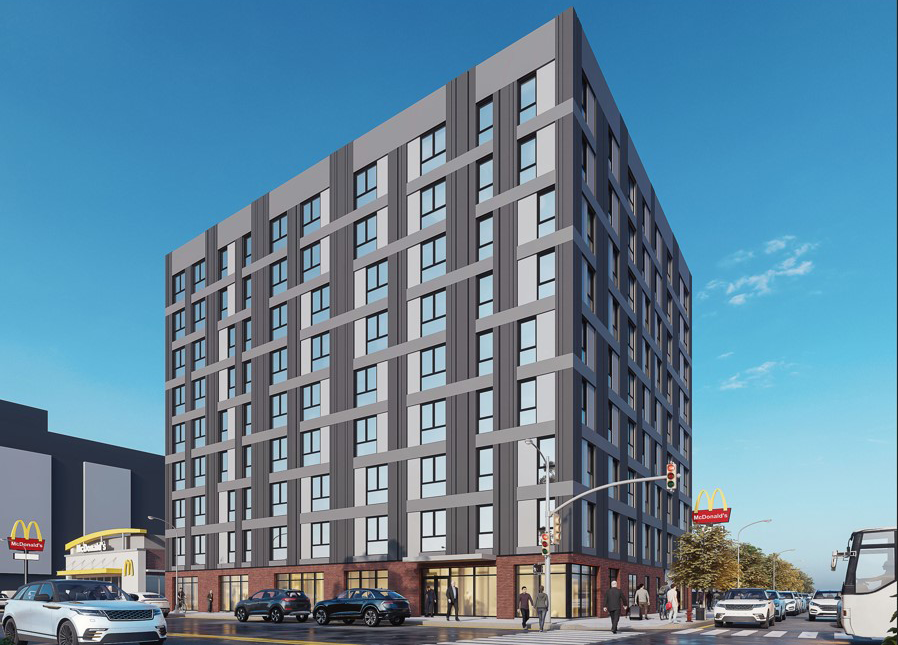
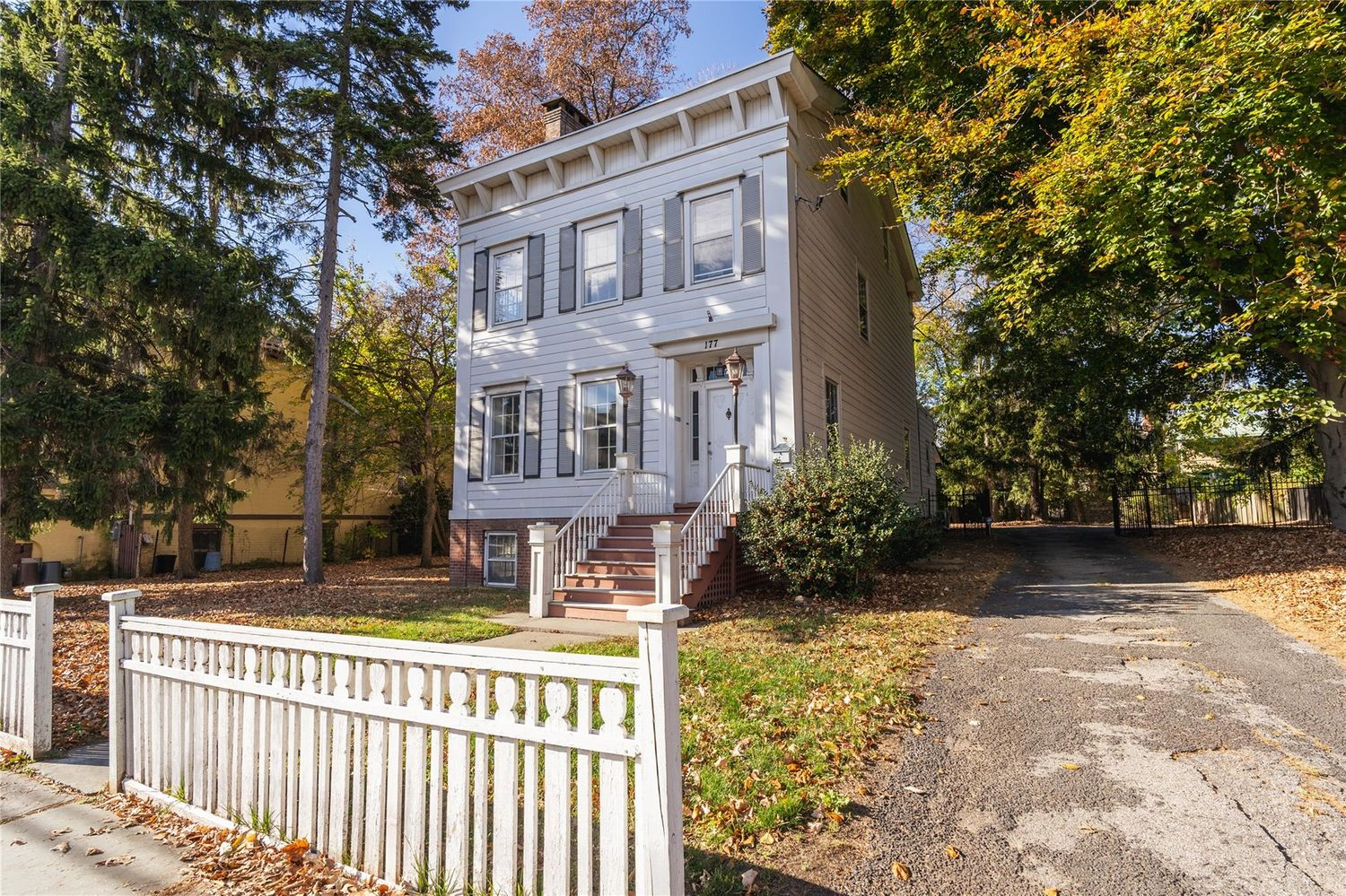
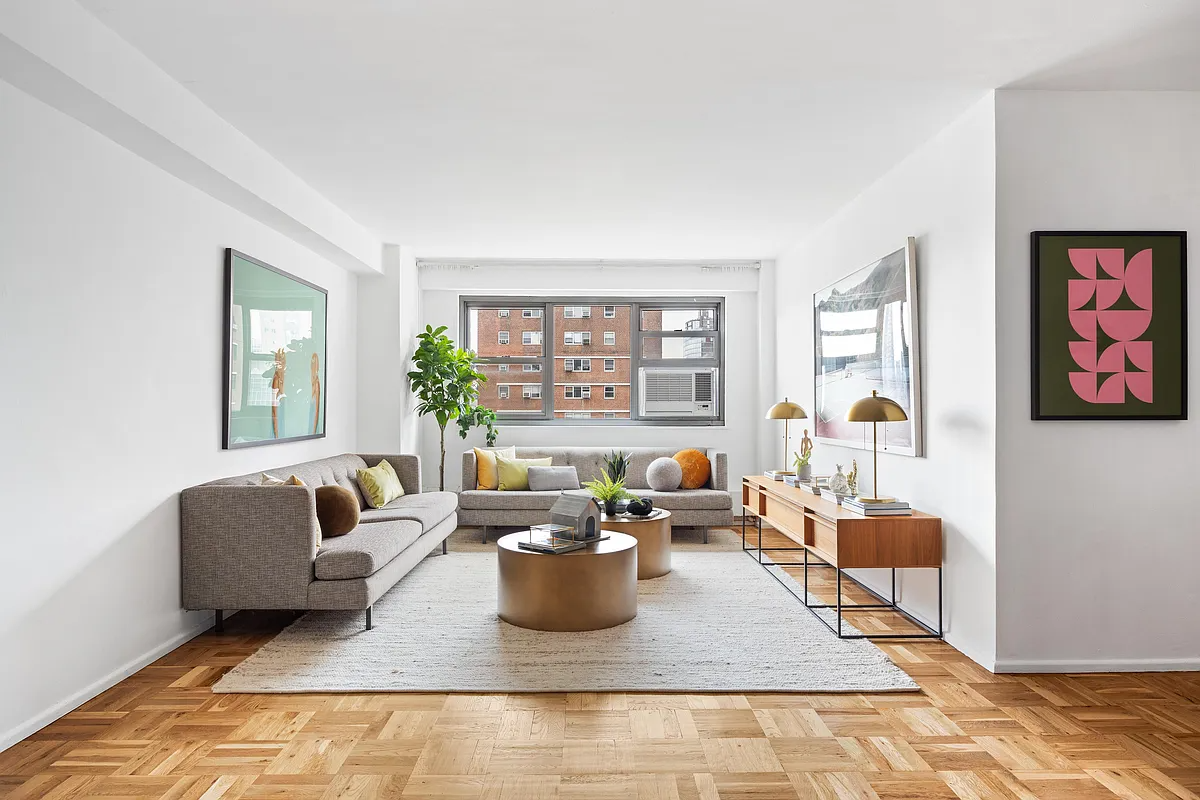





What's Your Take? Leave a Comment